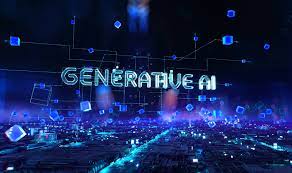By Rahul Dhar
Ever-evolving technology has compelled every industry to think out of the box and keep up with emerging technology to remain relevant. It is the same for the marketing industry. As staying ahead of the competition is the key to success, marketers are on the constant lookout for new and improved technology. Recently, marketers worldwide are turning to Artificial Intelligence (AI) to take their marketing strategies to the next level. As a groundbreaking technology revolutionizing the marketing landscape, AI has quickly become an integral part of modern marketing strategies. From empowering businesses to deliver personalized, data-driven, and efficient campaigns to transforming the way brands connect with their audiences, AI is taking over modern marketing.
In this blog post, let’s explore the multifaceted role of AI in modern marketing strategies.
- Understanding Consumer Behavior & Purchasing Patterns
One of the most meaningful advantages of incorporating AI in marketing lies in its power to analyze vast amounts of data from various sources. By leveraging machine learning algorithms, AI can identify patterns and trends in customer behavior, preferences, and interactions. Armed with this insight, marketers can create hyper-targeted campaigns tailored to individual customers, ensuring higher engagement rates and increased conversion rates.
- Personalization at Scale in a Hyper-Personalized World
Gone are the days of generic, one-size-fits-all marketing messages. AI equips marketers with the ability to deliver personalized experiences at scale. AI-powered recommendation engines, enable businesses to present customers with product suggestions based on their browsing history, purchase behavior, and preferences. This personalized approach not only enhances customer satisfaction but also fosters loyalty, leading to repeat business and higher customer lifetime value.
- Chatbots and Customer Service
AI-driven chatbots have transformed the way customer service functions in this digital age. These intelligent virtual assistants can handle customer queries 24/7, providing instant responses and resolutions. By efficiently addressing routine inquiries, chatbots free up human resources to focus on more complex tasks, ultimately improving customer satisfaction and streamlining operations.
- Predictive Analytics for Improved Decision Making
AI-powered predictive analytics helps marketers to forecast future trends and outcomes. By analyzing historical data, AI algorithms can predict customer behavior, and market trends, and even identify potential churn. Armed with the power of predictive analytics, businesses can make data-driven decisions, allocate resources effectively, and seize opportunities before the competition. For instance, Target made headlines in 2012 for correctly predicting the pregnancy of a teenager solely based on her purchasing habits – even before she had discovered her condition.
- Content Creation and Curation
The process of content creation and curation is evolving along with the evolution of AI. Natural Language Processing (NLP) algorithms can not only generate blog posts, social media updates, and product descriptions but also improve the readability and engagement level of different content types. This saves time and effort for marketers. Marketers can also leverage AI-powered content curation tools to sift through vast amounts of content and deliver relevant information to target audiences.
- Programmatic Advertising
Businesses are able to automate the buying and selling of ad space in real time with programmatic advertising. AI algorithms enable marketers to target specific audience segments with relevant ads, optimizing ad spend and maximizing ROI. Programmatic advertising ensures that ads are displayed to the right people, in the right context, and at the right time.
- Sentiment Analysis for Brand Reputation Management
It is crucial to maintain a positive brand reputation is in today’s digital world. AI-powered sentiment analysis tools help marketers to monitor social media and online mentions and gauge public opinion about their brand. AI tools help identify potential PR crises, enabling marketers to take proactive measures to address negative sentiment, safeguarding their brand image.
Artificial Intelligence has undoubtedly transformed modern marketing strategies, reshaping the way brands engage with their audiences. From data-driven insights to personalized experiences, AI is empowering marketers to make informed decisions and deliver exceptional customer experiences. With the continued evolution of AI technology, its role in marketing will only grow, leading to more innovative and efficient strategies that drive business success.
In this dynamic landscape, embracing AI is no longer an option but a necessity for businesses seeking to thrive in the highly competitive market. As marketers adapt to the AI-powered era, the key lies in striking a balance between technology and human creativity, leveraging AI to augment human ingenuity rather than replacing it entirely. By doing so, businesses can unlock the full potential of AI in their marketing strategies and stay ahead in the ever-evolving world of marketing.

(The author is Rahul Dhar, marketing professional, and the views expressed in this article are his own)






